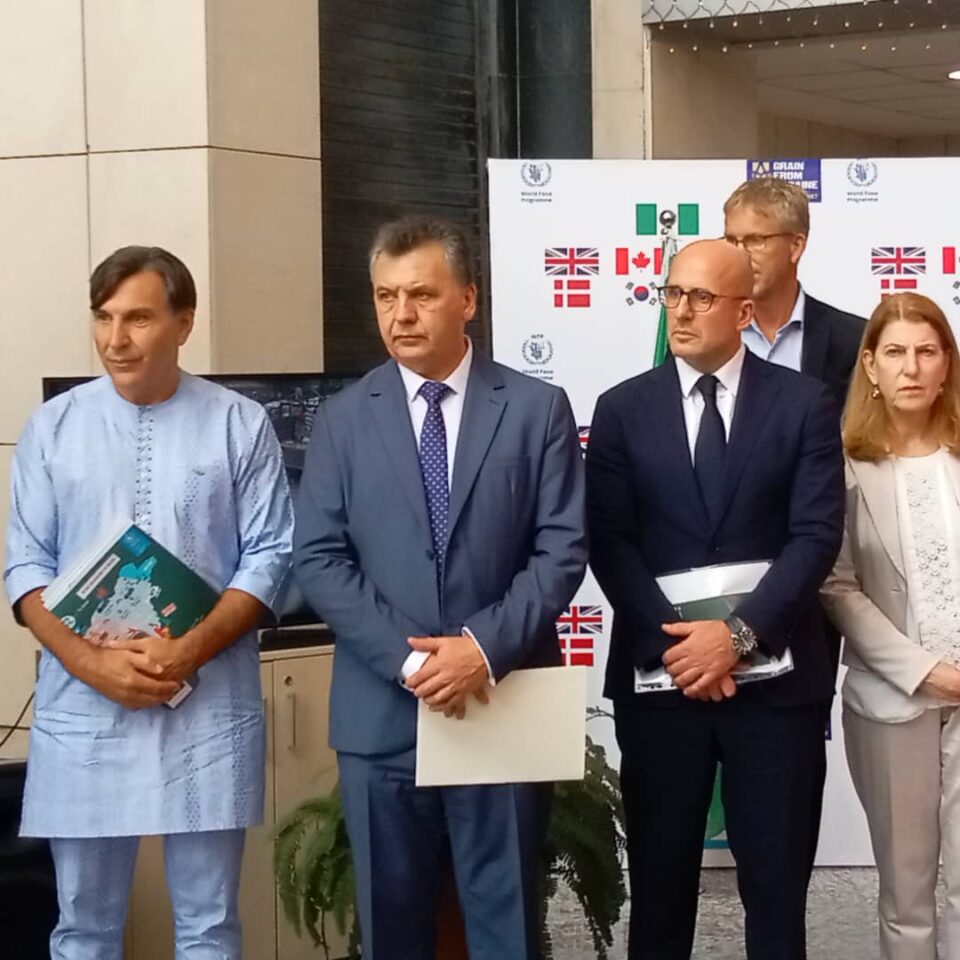The United Nations World Food Programme (WFP) has received a substantial donation of 25,000 tons of wheat from the Government of Ukraine.
This vital contribution, part of Ukraine’s humanitarian “Grain from Ukraine” initiative launched by President Volodymyr Zelenskyy, arrives as prices of staple food in Nigeria have risen, pushing basic meals out of the reach of millions of vulnerable families across the country.
Addressing newsmen yesterday in Abuja, David Stevenson, WFP Representative, and Country Director in Nigeria, expressed gratitude, stating, “We extend our heartfelt thanks to the Government of Ukraine, partners, and donors for their unwavering support through the Grain from Ukraine Initiative.”
He said this coordinated effort is instrumental in alleviating suffering in conflict-stricken areas. The timely donation arrives as Nigeria grapples with rising prices of staple foods, rendering them unaffordable for millions of vulnerable families.
Stevenson further said the collaborative efforts of Canada, Denmark, Finland, France, Luxembourg, Norway, Republic of Korea, Sweden, and the United Kingdom have played a crucial role in covering the transportation costs of the wheat from Ukraine to Nigeria.
He said the wheat donation, combined with cash and other commodities, will be integrated into WFP’s ongoing humanitarian operations, addressing the basic food and nutrition needs of crisis-affected individuals over a two-month period.
Stevenson mentioned that deadly conflicts and persistent violence in northeast Nigeria have driven millions of people out of their homes, off their farms, and across the region, jeopardizing agriculture and livelihoods production.
“Over the past three months, unlike in previous years, prices of key staples across several markets in Nigeria increased above pre-harvest levels, hampering food access for vulnerable families who depend on harvest and markets for their supplies.
“In Maiduguri, for example, the wholesale prices of red beans have increased by 210 percent compared to the same period last year (February 2023). Similarly, prices of maize and sorghum increased by 176 percent and 188 percent, respectively,” he said.
Stevenson mentioned that the country is also grappling with its fourth consecutive year of chronic food insecurity, with 26.5 million people across the country projected to face acute hunger during the 2024 lean season between June and August according to the November 2023 Cadre Harmonisé food security analysis.
“WFP is committed to working with the government and partners to build more resilient, inclusive, and effective food systems, taking advantage of its current footprint in the country.
“Through its ‘Out of Conflict into Solutions’ food system approach,” he said.
On his part, Ukraine Ambassador Ivan Kholostenko said Ukraine is committed to supporting the Nigerian government during this period of food insecurity to provide grain and cash support for farmers, the poor, and also the vulnerable.
He said this initiative is to restore and unlock the agricultural potential of northeast Nigeria, making it a key contributor to the country’s food security.



